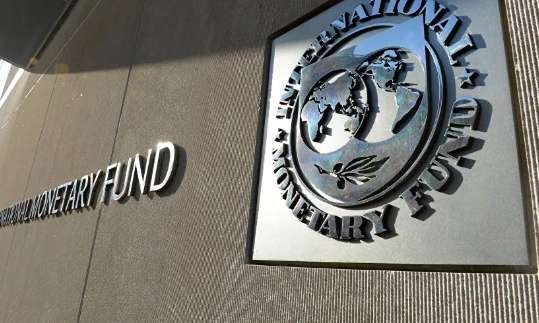The Nigerian government may spend nearly 100 per cent of its revenue on debt servicing by 2026, the International Monetary Fund (IMF) has warned.
The Bretton Wood institution raised concerns over Nigeria’s fiscal conditions, adding the nation spends 89 per cent of its revenue on debt.
The IMF’s Resident Representative for Nigeria, Ari Aisen, made this known on Monday in Abuja while presenting the fund’s latest Sub-Saharan Africa Regional Economic Outlook report.
IMF also warned that with fuel subsidy payments averaging N500 billion monthly, total expenditure on subsidy could hit a record N6 trillion by the end of the year.
“I think the biggest critical aspect for Nigeria is that we have done a macro-fiscal stress test, and what you observe is the interest payments as a share of revenue and as you see us in terms of the baseline from the federal government of Nigeria, the revenue, almost 100 percent, is projected by 2026 to be taken by debt service,” the IMF official said.
“So, the fiscal space or the amount of revenues that will be needed, and this, without considering any shock, is that most of the revenues of the federal government are now in fact 89 percent and it will continue, if nothing is done, to be taken by debt service.”
The IMF said that it is a reflection of the low revenue of the country, adding that it needs to mobilise more revenue to be able to have macroeconomic stability.
“It has become an existential issue for Nigeria,” Mr Aisen warned.
Subsidy
The IMF official lamented that as an oil exporter, Nigeria is unable to take advantage of the current global high oil prices to build reserves. The nation is equally confronted by low earnings due to the subsidy on petroleum products, he said.
Earlier in April, the Nigerian Senate approved N4 trillion for petrol subsidy in 2022, following two separate requests by the Nigerian president to the National Assembly. The government had shelved a planned move to suspend the subsidy payment a few weeks earlier.
READ ALSO: Inflation Hits 16.82%, Exceeds IMF’s 2022 Projection
In the midst of the uncertainties, the World Bank Group urged Nigeria to rethink its fuel subsidy regime and multiple exchange rates policy. Speaking during a media briefing at the World Bank/International Monetary Fund Spring Meetings in Washington DC, the president of the World Bank Group, David Malpass, said that resources being expended on subsidy could be channeled to other sectors of the economy to accelerate growth.
“One is that they are expensive because they go to everyone and they are often used by people with upper incomes than by people with lower incomes so they are not targeted,” he said.
“So, we encourage that when there is need for subsidy, either food or for fuel, that it should be carefully targeted at those most in need of it. And so, we have encouraged Nigeria to rethink its subsidy effort.”
In its intervention Monday, the IMF official reiterated the World Bank’s warning, adding that subsidy payments could worsen the nation’s fiscal challenges due to poor earnings from oil.
Speaking on the economic outlook for the continent, the IMF official advised governments across the region to reduce debt vulnerabilities, balance inflation and growth, and manage foreign exchange rate pressures.
“Unrivalled potential for renewable energy and an abundance of minerals, a successful transition offers opportunities for diversification and job creation; ensuring the green transition is also a just transition,” he said.
